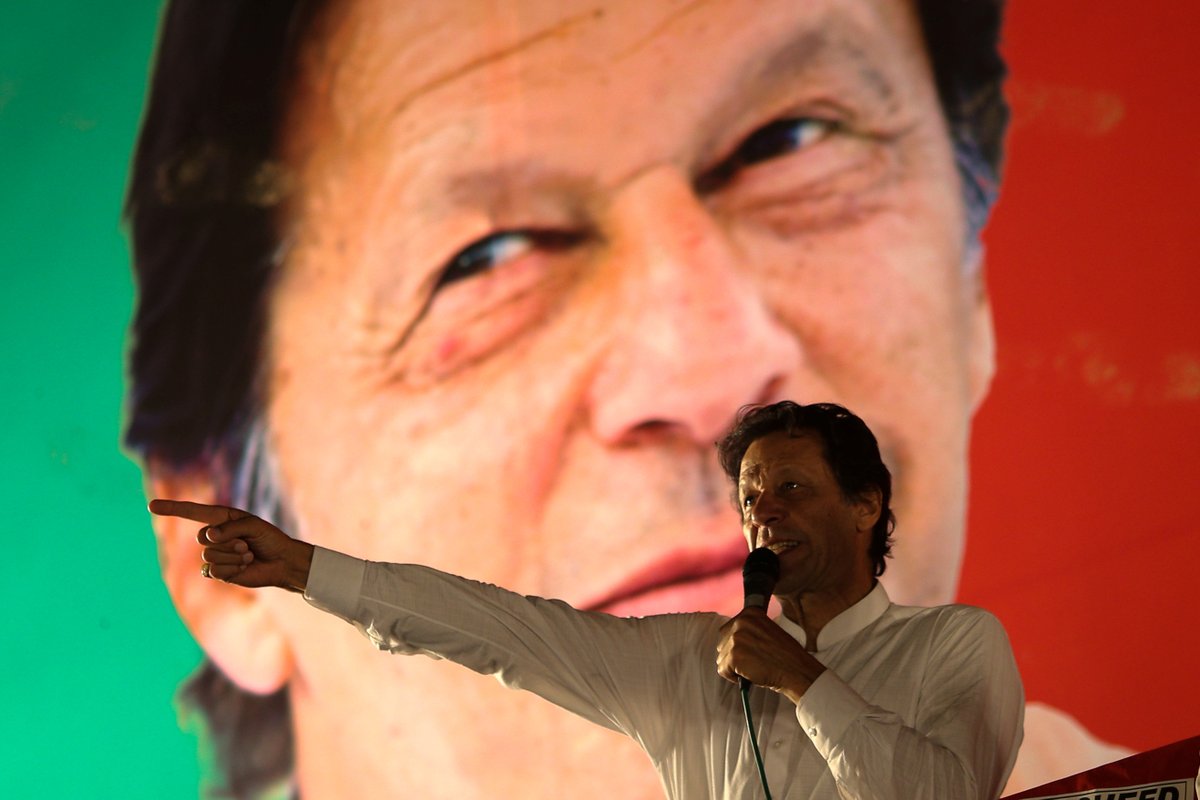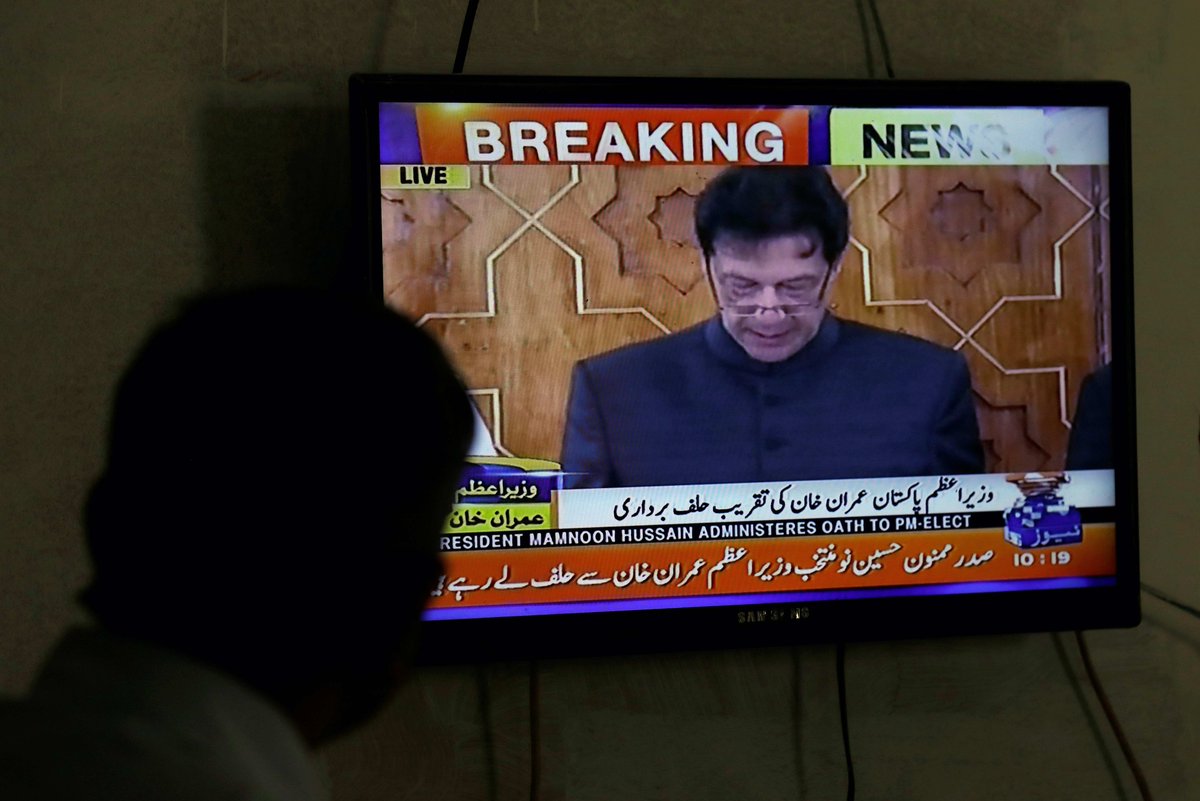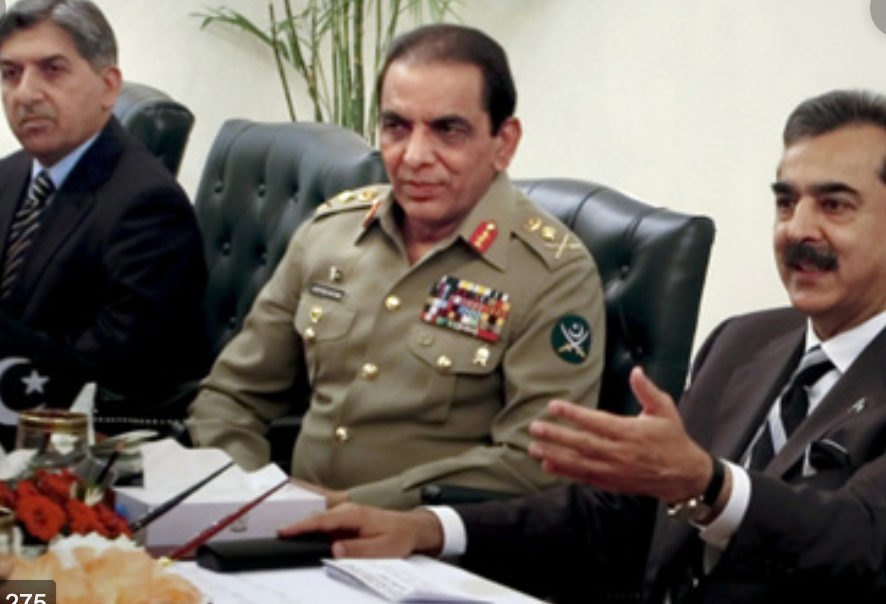
#ReportingPakistan
In an unexpected electoral setback which is shocking, even by #Pakistan's turbulent standards, cricketer-turned-prime minister #ImranKhan faces a crucial #VoteOfConfidence.
Here's a look at @ImranKhanPTI's political career, spanning over two decades.
In an unexpected electoral setback which is shocking, even by #Pakistan's turbulent standards, cricketer-turned-prime minister #ImranKhan faces a crucial #VoteOfConfidence.
Here's a look at @ImranKhanPTI's political career, spanning over two decades.

Propelled by his celebrity & supported by his (now former) wife @Jemima_Khan, Khan's early political career saw him adopt the role of international activist. Here, in 1997, he's on a tour of South Africa with then-President Nelson Mandela. 

Philanthropy would form the basis of his politics. The Shaukat Khanum, Pakistan's first cancer research hospital, would be inspired by his mother's demise & become his showcase for organizational change. Months before her own death in 1997, Princess Diana would help raise funds. 

After an unimpressive showing in his first election, and without much local political relevance, Khan would pick a humane, pan-Islamic theme for his politics. Here, in 1999, with his son Suleman in Islamabad, he protested Russia's treatment of Chechen Muslims. 

The philanthropy would spill over into social justice causes. Here, in 1998, Khan is seen leading a nighttime May Day march in the commercial capital, #Karachi. Though his politics would eventually veer right of center, his beginnings were clearly left-leaning. 

The 1999 coup would bring change and an opportunity. With the country's leading politicos #BenazirBhutto & #NawazSharif in exile, his @PTIofficial would try to exploit the gap in the 2002 elections. Khan would attract crowds, as seen in a Karachi rally here, but not the votes. 

Khan's relationship with the military ruler, General Pervez Musharraf, would remain controversial. Though they admired each other personally - here, in 2002, they're at a fundraiser - Khan claims to have refused becoming a part of Musharraf's military-led regime, despite offers. 

With weak back-to-back election results, detractors taunted Khan to "stick to the cricket." But he took the criticism casually, often flaunting his own feat of winning the World Cup in 1992 with a weak team. Here, in 2004, he's with @TheRealPCB captain Inzamam-ul-Haq in #India. 

The ongoing war in Afghanistan changed Pakistan, as well as Khan's politics. His swing to the right solidified as he joined a coalition of anti-war & Islamist parties. Here, at a conservative/Islamist rally in '04, he vowed to resist Musharraf's plans to remain as army chief. 

The alignment with the Islamists was not casual political flirting. By 2005, Khan was campaigning with heavyweight conservatives (and eventual rivals) like Qazi Hussain Ahmed & Maulana Fazlur Rehman, criticising Pakistan's alliance with the US and Musharraf's secular credentials. 

Though his more liberal critics would castigate him as "Taliban Khan," the cricket hero would remain very relevant on the international celebrity circuit. Here, in 2006, he's seen hosting legendary Indian batsman @sachin_rt and the rest of the @BCCI team at his Islamabad villa. 

Khan's pan-Islamic tendencies remained, with contradictions. He'd be an anti-war pacifist cum conservative nationalist by day, then a hard-charging socialite by night. He also publicly fawned over other "Big Man" leaders, like Malaysia's Mahathir Mohamad, pictured here in 2006. 

When Musharraf's weakened regime announced elections in 2007/8, Khan stepped into campaign mode, but without clear direction. On the one hand, he was close to the Islamists. On the other, he needed support from students, like these from the University of Punjab, pictured in '07. 

Khan's anti-Musharraf posture eventually earned him some political street cred. He had long been criticised for being too close to the army's conservative intelligence wing. But a few nights of imprisonment in 2007, and the stubble to prove it, took care of that, if temporarily. 

By the late 2000s, the cricketer turned politician had turned into a unapologetic nationalist. Here, in 2009, he is pictured congratulating nuclear scientist A. Q. Khan, the man at the centre of the world's most serious proliferation scandal, after a court ordered his release. 

By the end of the decade, Khan would reorganize. On October 30, 2011, with #Pakistan spiralling from increasing terrorism, a broken economy & a weak government, he'd mark his comeback with a massive rally in Lahore & a new appeal that would propel him forward: anti-corruption. 

But if majestic Lahore, the political capital, would be the stage of his comeback, the unruly northwest would be the engine. Here, Khan would continue to burnish his ethnic Pashtun & anti-war credentials, as seen at a "peace march" against US drone strikes in 2012, in Musa Khel. 

The propulsion would be exhilarating. On the eve of the 2013 elections, no analyst in the country would count Khan out of the race. But tragedy would strike the former cricketer, who would fall almost 20 feet while ascending a rally stage, hurting his spine & ending his campaign. 

His recovery would be quick, but his electoral loss would keep him in the opposition. Yet, Khan would remain the world's most famous Pakistani, with a narrative increasingly similar to the country's military establishment. Here, in '13, he meets US Secretary of State John Kerry. 

In 2014, as the government's relations with the army frayed, Khan saw opportunity. He would lead a massive "peace march," paralyzing the capital for months. Part-rock concert, part-political protest, critics saw the months-long & eventually violent movement as militarily-backed. 

His protests called off, Khan, not much of a legislator, prepared for the next election in perpetual campaign mode: planting trees, regularly appearing on TV, or flying around to attend rallies with his newfound religiosity & tasbih, or prayer beads, as seen here in Narowal, '18. 

By 2018, his presence would be larger than ever. And he would get help. From donors, especially rich Pakistanis based abroad. From sell-swords, who'd leave their parties for him. And, at least indirectly, from the army, which would push probes against his rivals, weakening them. 

Though he'd fumble during his oath taking ceremony in August 2018, the event would still be momentous. After almost 25 years in electoral politics, over twenty of which were spent in the wilderness, Khan would become the first man to break #Pakistan's entrenched two-party system. 

Today, smack in the middle of his term, with a mixed record of both gains & losses, compromises & qualities, straight-shots & u-turns, Khan stands vulnerable to what can be described as a best-case scenario of a mere palace coup or something worse: being marooned by the military. 

• • •
Missing some Tweet in this thread? You can try to
force a refresh











